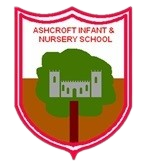Implementation
Successful implementation of our skill based curriculum is achieved through our continuously evolving environment and the interactions of knowledgeable and skilled staff.
A stimulating and thought provoking environment, which is carefully organized is pivotal. Our aim is to manage the environmental opportunities and respond to interactions inquisitively. We believe in scaffolding children’s skills and knowledge to enable them to use these tools independently within their own learning.
Demonstrating, exploring ideas, questioning, setting challenges and providing a working narrative in a cross curricular and real life context is essential, in order to ensure a breadth and depth of understanding.
We follow the Development Matters curriculum but have adapted the document to the needs of our children. Following an approach that uses aspects of In the Moment Planning (ITMP) we are able to look for daily teachable moments, so that every opportunity to learn is utilized creatively, in a cross curricula way. Working this way allows us to build strong relationships with children and their significant others, providing us with open communication and a strong foundation to build knowledge without gaps. Key to this is our assessment process, which focuses on finding out what children know and can do, how they achieve this and how they are developing as learners. Each child’s learning journey is documented uniquely, with a strong emphasis of quality over quantity. To avoid dysfluency across the EYFS curriculum we do not use the development matters document exclusively as our threshold of achievement. Instead staff use their professional judgement and knowledge of each individual, comparing observations to our agreed school exemplification document. Using our knowledge of individual’s abilities and the development matters document we are able to track and monitor progress, using it to plan effectively for individual needs as well as evaluating the learning environment; generating the next steps of learning immediately
Exposing children to a wide range of cultural celebrations and world events helps children to recognize the diversity of our world and encourages them to think about others. Firm boundaries and expectations are introduced from the onset. The open- ended resources and opportunities for sustained continuous provision engage children in a collaborative way, which helps them to recognize the multiple ways to achieve an individual or common goal. Emotional empowerment and self- regulation are fostered through these interactions. Linked to this is our drive to develop children’s listening and talking skills. A rich vocabulary, in conjunction with good understanding and communication skills is crucial. IMTP allows us to exploit extended opportunities for narratives; that produce sustained and shared thinking, by introducing new ideas and vocabulary naturally into our dialogue and interactions.
Paralleled to this is the introduction to early literacy skills from the onset of Nursery. Using aspects of story scribing and talk for writing we encourage the use of imaginative vocabulary to create story maps, talk about characters and act out stories. This approach continues in Reception where we elaborate and extend the opportunities to introduce basic literacy skills. Our priority is to empower children to use quality skills within our daily routine. Children are encouraged to recognize how literacy enhances all aspects of our lives i.e. list writing for turn taking, signs for around our classroom, letters to friends.
As part of understanding literacy in the wider context priority is given to developing a love of reading. Time is given each day to share a story as a class, with opportunities to model story telling language and discuss different texts. We follow a Letters and Sounds approach to teaching daily phonics as we feel the system compliments the needs of our children and works well with our general approach to planning. We aim for children to have a secure knowledge of phase 2/ 3 letters and sounds as well as recognizing the tricky and high frequency words for these phases.
The initial focus of our Mathematics starts with the NCETM (Numberblocks) planning as a talking point but in order to ensure a secure and deep understanding without gaps we do not move experiences to a more abstract level until a solid security is shown. Instead more repeated opportunities to explore and demonstrate understanding, in a range of contexts, is offered. We spend much of the first term exploring numbers to 10, looking at each number deeply and their relationships. The following terms are used to explore these numbers and their relationships with higher numbers in difference contexts, building on current knowledge preparing them for the content of the KS1 Mathematics curriculum. Our ITMP approach enables us to link concepts of shape, measure and time to aspects of our daily routine, in a cross curricula method, i.e demonstrating o’clock times in our daily routine for example register, lunchtime, hometime, or exploring shape and weight in the junk zone when wrapping parcels; using story books with a specific theme, such as The Bad Tempered Ladybird.
